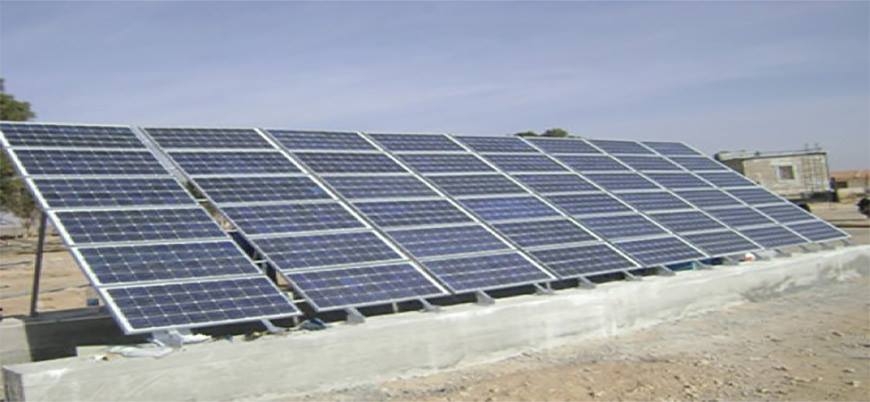
22 May 2015
The continuing the power outages and fuel shortages in Daraa city, led to agricultural disaster which was soon turned into a humanitarian and food disaster, because of the stop pumping engines in the wells and dams from work. Thus, the search for an alternative solution has been a serious work in the field of alternative energy.
Residents rushed to avoid this crisis by taking advantage of the sun in the solar panels to re- run the wells again.
Hence, farmers began installing a large amount of solar panels where the well needs about 60 solar panel and each panel is a 250 watt, taking in note that the well has a 25 horsepower pump, the well would work for a period of 10 hours as long as the sun’s rays are present and if it was needed to run it at night, savings units, which is charged during the day by the sun’s rays, provide the needed power. Also because of the nature of the region, solar panels would be available for 8 months and partially through the rest of the year. One well covers the needs of approximately 3 – 4 thousands of people with clean drinking water, in case using the well in agricultural areas, it is sufficient to quench about 10 hectares of fertile agricultural land.
Abu Adham Alasmi, Prime Services office in one of the local councils in the countryside of Daraa said, this project is of high economic feasibility, saving monthly about a million Lira, which equals ($ 4000), was supposed to be paid for diesel, while solar panels cost of full convergence around 5 million which equals (20 thousand dollars) without any future expenses and this can be reflected positively on the low prices of agricultural products after the low cost of production.
He adds that this technique cannot be used in areas, which are located on the military line of contact with the regime, to avoid being destroyed as a result of fighting around the constant bombardment. It is only deployed in the areas that came out from the regime control for a long period of time and are far from the line of battles and clashes.
Getting these panels requires finding alternative market instead of buying it from the regime markets and being forced to pay bribes barriers for every checkpoint on all key roads leading to the areas controlled by opposition forces and thus prices is very high and makes the panels not available to everyone.
These markets represented by importing through border crossings controlled by the Free Army forces with the Jordanian border. If this process was supported politically by the Syrian Coalition, via doing trading agreements with Jordan, especially that all crossings are controlled by the Free Syrian Army, it would bring benefits for both sides.
The idea of alternative energy came after the power supply has been continually cut, in addition to the lack of fuel and in the region that emerged from the regime’s control, and in this context farmers in Daraa, who now works on alternative energy, aspire to circulate there idea to all areas under the control of the free army, as it could be a pressure on the regime and also document confirming for all and especially the Syrian farmers that political forces supporting bodies will not leave them alone in regards to this problem.

 عربي
عربي